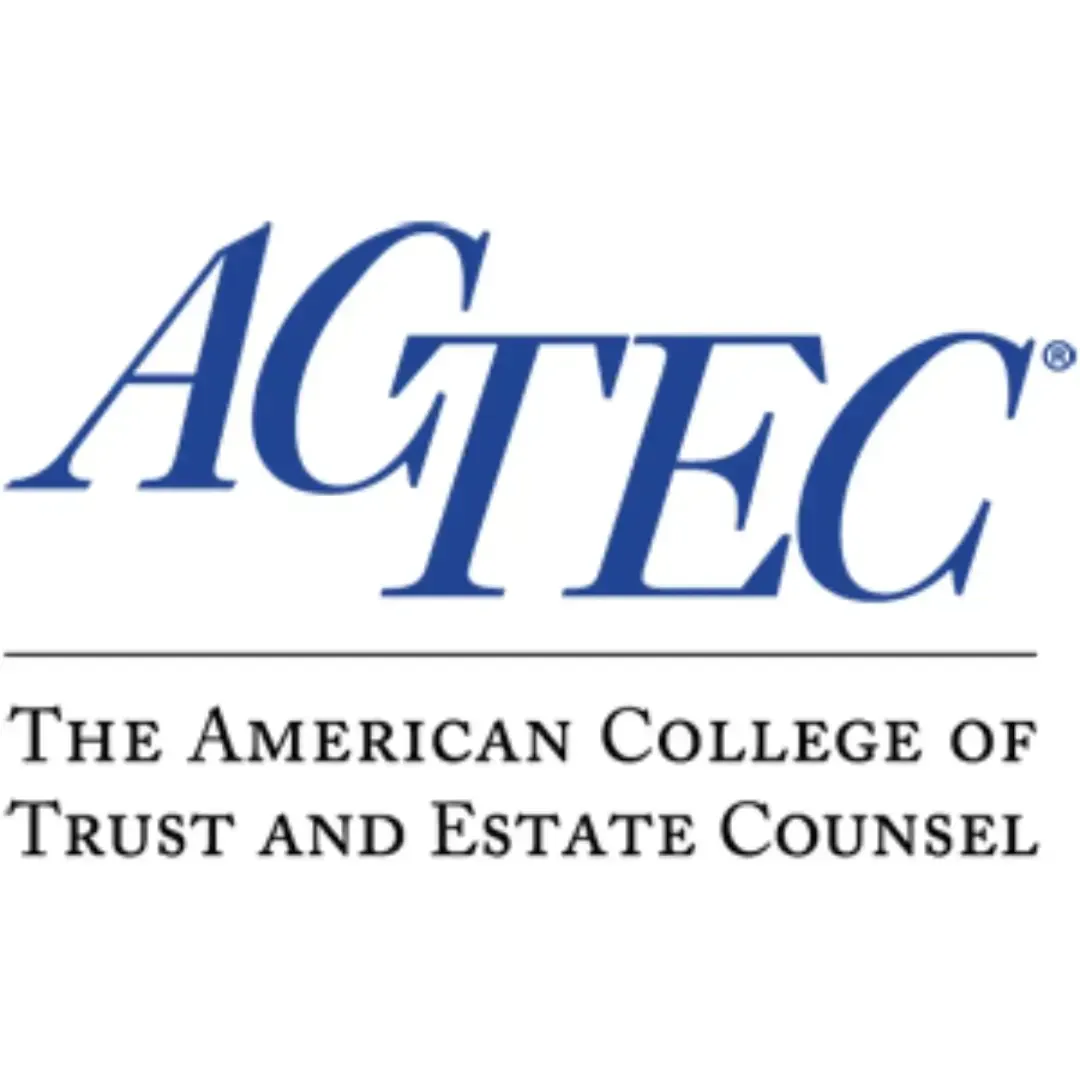
Blogs

Expert Real Estate Litigation Services in West Virginia
Real Estate Litigation Services in West Virginia: How to Resolve Property Disputes Effectively
Real estate litigation in West Virginia encompasses a complex and multifaceted area of law that addresses disputes arising from property ownership, use, transfer, and development throughout the Mountain State. From the bustling commercial districts of Charleston and Huntington to the rural farmlands and residential communities scattered across West Virginia's diverse landscape, property disputes can emerge in countless forms, each requiring specialized legal knowledge and strategic approaches to achieve successful resolution.
The unique characteristics of West Virginia's real estate market, combined with the state's distinctive legal framework and geographical challenges, create a specialized environment for property litigation that demands experienced legal representation. Whether dealing with boundary disputes in the rugged Appalachian terrain, navigating complex mineral rights issues related to the state's energy resources, or addressing landlord-tenant conflicts in urban rental markets, West Virginia real estate litigation requires attorneys who understand both the legal complexities and practical realities of property ownership in the state.
Property disputes can have far-reaching consequences for individuals, families, and businesses, affecting not only immediate financial interests but also long-term property values, development opportunities, and personal relationships. The resolution of these disputes often requires careful balance between legal strategy, practical considerations, and the unique circumstances surrounding each property and the parties involved.
Understanding the landscape of real estate litigation services in West Virginia is essential for property owners, tenants, developers, and real estate professionals who may find themselves involved in property-related legal disputes. This comprehensive guide examines the various types of real estate disputes commonly encountered in West Virginia, the legal processes and strategies used to resolve them, and the critical factors to consider when selecting legal representation for property litigation matters.
The importance of effective legal representation in real estate disputes cannot be overstated, as the outcomes of these cases often determine property rights, financial obligations, and future opportunities for all parties involved. By understanding the complexities of West Virginia real estate litigation and the services available to address these challenges, property owners and other stakeholders can make informed decisions about protecting their interests and achieving favorable resolutions to their disputes.
What Types of Real Estate Disputes Do West Virginia Lawyers Handle?
West Virginia real estate attorneys handle a comprehensive range of property-related disputes that reflect the diverse nature of the state's real estate market and the complex legal issues that can arise from property ownership, development, and use. These disputes span from residential matters affecting individual homeowners to complex commercial litigation involving significant financial stakes and multiple parties.
Property boundary disputes represent one of the most common categories of real estate litigation in West Virginia, particularly given the state's mountainous terrain and historical development patterns that can create uncertainty about exact property lines. These disputes often arise when property owners discover discrepancies between their understanding of property boundaries and the actual legal descriptions, survey results, or neighboring property claims. The resolution of boundary disputes frequently requires detailed analysis of historical deeds, surveys, and property records, combined with current surveying work and legal interpretation of property descriptions that may date back generations.
Easement disputes constitute another significant category of real estate litigation, involving conflicts over rights to use portions of property for specific purposes such as access, utilities, or drainage. In West Virginia's rural areas, easement disputes often involve access roads to landlocked properties, utility line placements, or traditional use patterns that may not have been formally documented. These cases require careful examination of historical use patterns, property records, and the legal requirements for establishing and maintaining easements under West Virginia law.
Title disputes encompass a broad range of issues related to property ownership, including challenges to the validity of deeds, claims of adverse possession, disputes over mineral rights, and problems with title insurance coverage. West Virginia's history of mineral extraction and complex property ownership patterns can create particularly challenging title issues that require specialized knowledge of both real estate law and the state's unique mineral rights framework.
Landlord-tenant disputes form a substantial portion of residential real estate litigation, covering issues such as eviction proceedings, security deposit disputes, habitability claims, lease violations, and discrimination allegations. These cases often require quick resolution due to the immediate housing needs of tenants and the financial pressures faced by landlords, making efficient legal representation crucial for all parties involved.
Real estate transaction disputes arise when problems occur during the purchase, sale, or financing of properties, including issues with contract performance, disclosure violations, financing problems, and closing disputes. These cases often involve significant financial stakes and may require coordination with real estate professionals, lenders, and other parties involved in the transaction process.
Construction and development disputes represent complex litigation matters that may involve multiple parties including property owners, contractors, subcontractors, architects, engineers, and government entities. These disputes can encompass issues such as construction defects, contract violations, lien claims, zoning violations, and environmental compliance problems.
Eminent domain cases involve government entities' exercise of their power to take private property for public use, requiring property owners to receive just compensation for their losses. These cases often involve complex valuation issues and require specialized knowledge of both real estate law and constitutional protections for property owners.
How Are Property Boundary and Easement Disputes Resolved?
Property boundary and easement disputes in West Virginia require specialized approaches that combine legal analysis with practical considerations related to the state's unique geographical and historical characteristics. The resolution of these disputes often begins with comprehensive research into property records, historical documents, and survey information that may span decades or even centuries of property ownership and development.
The initial phase of boundary dispute resolution typically involves gathering and analyzing all available documentation related to the properties in question, including deeds, surveys, tax records, and any historical documents that may provide insight into the intended boundaries or historical use patterns. This research phase is crucial because West Virginia's property records may include descriptions based on natural landmarks, historical structures, or other reference points that have changed or disappeared over time.
Professional surveying plays a critical role in boundary dispute resolution, as modern surveying techniques can provide precise measurements and mapping that help clarify the actual location of property lines. However, surveying in West Virginia can be particularly challenging due to the state's mountainous terrain, dense vegetation, and weather conditions that may affect survey accuracy. Experienced surveyors familiar with West Virginia conditions and historical surveying practices are essential for producing reliable results that can withstand legal scrutiny.
Legal analysis of boundary disputes requires careful examination of the legal principles governing property descriptions, including the hierarchy of calls in deed interpretation, the resolution of conflicts between different types of boundary markers, and the application of doctrines such as acquiescence and practical location. West Virginia law provides specific guidance on how to interpret conflicting boundary descriptions and resolve disputes between adjacent property owners.
Easement disputes require similar comprehensive analysis but focus on the rights to use property rather than ownership boundaries. The resolution of easement disputes often involves determining whether easements were properly created, whether they have been abandoned or terminated, and what specific rights and obligations they create for property owners. This analysis may require examination of historical use patterns, maintenance responsibilities, and the impact of property changes on easement rights.
Negotiation and mediation often provide effective alternatives to litigation for boundary and easement disputes, particularly when the parties have ongoing relationships as neighbors or when the costs of litigation would exceed the value of the disputed property rights. Skilled attorneys can help parties explore creative solutions that address the underlying concerns while avoiding the expense and uncertainty of court proceedings.
When litigation becomes necessary, boundary and easement disputes typically involve detailed presentation of evidence including survey results, historical documents, witness testimony about historical use patterns, and expert testimony from surveyors and other professionals. The court's decision will establish the legal boundaries or easement rights and may include provisions for ongoing maintenance, access, or other practical considerations.
What Are Common Landlord-Tenant Disputes in West Virginia?
Landlord-tenant disputes in West Virginia encompass a wide range of issues that reflect the diverse rental housing market throughout the state, from urban apartment complexes in Charleston and Huntington to rural rental properties and seasonal housing arrangements. These disputes often require prompt resolution due to the immediate impact on housing stability and the financial interests of both landlords and tenants.
Eviction proceedings represent the most urgent category of landlord-tenant disputes, typically arising from non-payment of rent, lease violations, or holdover tenancy situations. West Virginia's eviction process follows specific legal procedures that must be carefully followed to ensure valid outcomes, including proper notice requirements, court filing procedures, and tenant rights to defend against eviction actions. The complexity of eviction law requires attorneys who understand both the legal requirements and the practical considerations involved in removing tenants while protecting landlords' property rights.
Security deposit disputes constitute another common source of landlord-tenant litigation, involving disagreements over the return of deposits, the validity of deductions for damages or cleaning, and the proper handling of deposit funds during tenancy. These disputes often require careful analysis of lease terms, documentation of property conditions, and application of West Virginia law regarding normal wear and tear versus tenant-caused damage.
Habitability claims arise when tenants allege that rental properties fail to meet basic standards for safe and healthy living conditions, including problems with heating, plumbing, electrical systems, structural integrity, or pest infestations. These cases often involve complex factual disputes about the condition of properties, landlords' responsibilities for repairs and maintenance, and tenants' rights to withhold rent or terminate leases due to uninhabitable conditions.
Lease violation disputes encompass a broad range of issues including unauthorized occupants, pet violations, noise complaints, property damage, and violations of specific lease terms. The resolution of these disputes requires careful analysis of lease language, documentation of violations, and consideration of appropriate remedies that may include lease termination, monetary damages, or injunctive relief.
Discrimination claims in housing involve allegations that landlords have violated federal or state fair housing laws by treating tenants differently based on protected characteristics such as race, religion, sex, national origin, familial status, or disability. These cases require specialized knowledge of fair housing law and may involve complex factual disputes about landlords' motivations and the impact of their actions on protected tenants.
Rent control and rent increase disputes, while less common in West Virginia than in some other states, may arise in specific municipalities or under particular lease arrangements that limit landlords' ability to increase rents or modify lease terms. These disputes often involve interpretation of local ordinances, lease provisions, and state law regarding rent regulation.
The resolution of landlord-tenant disputes often benefits from early intervention and negotiation, as the ongoing relationship between the parties and the immediate housing needs involved make quick resolution particularly valuable. Experienced attorneys can help parties understand their rights and obligations while exploring solutions that address the underlying problems without the expense and delay of extended litigation.
How Does Eminent Domain Affect Property Owners in West Virginia?
Eminent domain in West Virginia represents a significant area of real estate litigation that involves the government's constitutional power to take private property for public use, provided that property owners receive just compensation for their losses. The exercise of eminent domain power in West Virginia can affect property owners throughout the state, from urban redevelopment projects in major cities to rural infrastructure improvements and natural resource development initiatives.
The scope of eminent domain in West Virginia includes traditional public uses such as roads, schools, utilities, and public buildings, as well as economic development projects that may benefit private entities but serve broader public purposes. The state's energy infrastructure needs, including pipeline projects, transmission lines, and renewable energy developments, have created numerous eminent domain cases that require specialized knowledge and strategic approaches to protect property owners' interests.
Property valuation represents one of the most critical and complex aspects of eminent domain cases, as the determination of just compensation requires careful analysis of property values, the impact of the taking on remaining property, and the specific rights being acquired by the government entity. West Virginia's diverse property types, from urban commercial properties to rural farmland and mineral rights, require different valuation approaches and specialized expertise to ensure accurate compensation determinations.
Partial takings, where only a portion of a property is acquired through eminent domain, create particularly complex valuation issues because property owners must be compensated not only for the land taken but also for any reduction in value to the remaining property. These cases often involve detailed analysis of access issues, development potential, and the functional impact of the taking on the property owner's use of the remaining land.
The procedural requirements for eminent domain in West Virginia include specific notice provisions, appraisal processes, and opportunities for property owners to challenge both the necessity of the taking and the amount of compensation offered. Understanding these procedures is crucial for property owners who want to protect their rights and ensure they receive fair compensation for their losses.
Negotiation strategies in eminent domain cases often focus on maximizing compensation while minimizing the disruption to property owners' lives and businesses. Experienced attorneys can help property owners understand the full scope of their rights and develop strategies for achieving the best possible outcomes in eminent domain proceedings.
What Legal Issues Arise in Real Estate Transaction Disputes?
Real estate transaction disputes in West Virginia can arise at any stage of the property purchase, sale, or financing process, creating complex legal challenges that require prompt and effective resolution to protect the interests of all parties involved. These disputes often involve significant financial stakes and may affect the ability of parties to complete transactions, obtain financing, or achieve their real estate objectives.
Contract performance disputes represent one of the most common categories of real estate transaction litigation, involving disagreements about parties' obligations under purchase agreements, financing commitments, or other transaction documents. These disputes may arise from issues such as failure to meet closing deadlines, disputes over property conditions, financing problems, or disagreements about contract interpretation.
Disclosure violations constitute another significant source of real estate transaction disputes, particularly when sellers fail to provide required information about property conditions, environmental issues, or other material facts that could affect buyers' decisions. West Virginia law requires specific disclosures for residential property sales, and violations of these requirements can result in significant liability for sellers and their agents.
Financing disputes may arise when lenders fail to provide committed financing, when borrowers fail to meet loan conditions, or when problems with property appraisals, title issues, or other factors prevent loan closings. These disputes often require coordination between multiple parties including buyers, sellers, lenders, and real estate professionals to achieve resolution.
Title problems can create significant transaction disputes when issues such as liens, encumbrances, boundary problems, or ownership disputes prevent clear title transfer. These problems may require extensive legal work to resolve and can significantly delay or prevent transaction completion.
Inspection disputes arise when property inspections reveal conditions that were not disclosed or when parties disagree about the significance of inspection findings, repair obligations, or the impact of property conditions on transaction terms.
Real estate professional liability issues may arise when real estate agents, brokers, attorneys, or other professionals involved in transactions fail to meet their professional obligations or provide inadequate services that result in financial losses for their clients.
The resolution of real estate transaction disputes often requires quick action due to the time-sensitive nature of real estate transactions and the financial pressures faced by all parties. Experienced real estate attorneys can help parties understand their rights and obligations while working to achieve resolutions that allow transactions to proceed or provide appropriate compensation for losses.
How Are Title Disputes Addressed by Real Estate Attorneys?
Title disputes in West Virginia require specialized legal knowledge and strategic approaches to resolve complex issues related to property ownership, liens, encumbrances, and other factors that can affect the marketability and value of real estate. These disputes often involve detailed analysis of historical property records, legal research, and coordination with title insurance companies and other parties to achieve resolution.
Ownership disputes may arise when multiple parties claim rights to the same property, when there are questions about the validity of deeds or other transfer documents, or when adverse possession claims create uncertainty about property ownership. These disputes require careful examination of property records, legal analysis of ownership requirements, and often involve complex factual disputes about historical use and possession of property.
Lien disputes involve challenges to the validity, priority, or amount of liens against property, including mechanic's liens, tax liens, judgment liens, and other encumbrances that can affect property ownership and transfer. The resolution of lien disputes often requires analysis of the procedures used to create and perfect liens, as well as the legal requirements for lien enforcement and discharge.
Boundary and survey disputes related to title issues may arise when property descriptions in deeds conflict with survey results, when there are questions about the location of property lines, or when encroachments or other boundary problems affect property ownership rights.
Mineral rights disputes represent a particularly complex area of title litigation in West Virginia, given the state's history of mineral extraction and the frequent separation of surface and mineral rights. These disputes may involve questions about the scope of mineral rights, the validity of mineral leases, or conflicts between surface and mineral owners.
Title insurance disputes arise when title insurance companies deny coverage for title defects, when there are disagreements about the scope of coverage, or when title insurance policies fail to provide adequate protection for property owners or lenders.
The resolution of title disputes often involves coordination with title insurance companies, which may have obligations to defend or indemnify property owners against title claims. Understanding the relationship between title insurance coverage and legal representation is crucial for achieving effective resolution of title disputes.
Why Choose a West Virginia Property Dispute Lawyer for Your Case?
Selecting appropriate legal representation for property disputes in West Virginia requires careful consideration of the unique characteristics of the state's real estate market, legal framework, and geographical challenges that can significantly affect the outcome of property litigation. The choice of attorney can have a profound impact on the success of property dispute resolution and the protection of clients' interests throughout the legal process.
What Makes West Virginia Real Estate Law Unique?
West Virginia real estate law reflects the state's distinctive history, geography, and economic characteristics, creating a specialized legal environment that requires attorneys with specific knowledge and experience in the state's property law framework. Understanding these unique characteristics is essential for effective representation in West Virginia property disputes.
The state's mountainous terrain and historical development patterns have created unique challenges for property ownership, boundary determination, and development that are not commonly encountered in other states. These geographical factors affect everything from surveying accuracy to access rights and can significantly impact property values and dispute resolution strategies.
West Virginia's history of mineral extraction has created a complex framework of mineral rights law that frequently separates surface and mineral ownership, creating unique legal relationships and potential conflicts between different types of property owners. This separation of rights requires specialized knowledge of both surface and mineral law to effectively represent clients in property disputes.
The state's rural character and agricultural heritage have created unique legal issues related to agricultural land use, water rights, and traditional use patterns that may not be formally documented but have significant legal implications for property ownership and use rights.
How Does a Client-Focused Approach Benefit Property Litigation?
A client-focused approach to property litigation recognizes that real estate disputes often involve more than just legal issues, encompassing personal, financial, and business considerations that require careful attention and strategic planning to achieve optimal outcomes for clients. This approach emphasizes understanding clients' objectives, concerns, and constraints while developing legal strategies that address both immediate legal needs and long-term goals.
Understanding clients' personal and financial circumstances allows attorneys to develop strategies that consider not only the legal merits of cases but also the practical implications of different resolution approaches. This understanding is particularly important in real estate disputes, where the outcomes can have significant long-term effects on clients' financial security and personal well-being.
Communication and client education represent crucial components of effective property litigation representation, as clients need to understand their legal rights, the litigation process, and the potential outcomes of their cases to make informed decisions about case strategy and resolution options.
Flexibility and adaptability in legal strategy allow attorneys to respond effectively to changing circumstances, new information, and opportunities for resolution that may arise throughout the litigation process. This flexibility is particularly important in property disputes, where factual developments or changes in parties' circumstances can significantly affect case dynamics.
What Experience Should You Look for in a Real Estate Litigation Attorney?
Selecting a real estate litigation attorney requires careful evaluation of the attorney's experience, expertise, and track record in handling property disputes similar to the client's situation. The specialized nature of real estate litigation makes these selection criteria particularly important for successful representation.
Specialized experience in real estate litigation is essential, as this area of law involves unique legal principles, procedural requirements, and strategic considerations that may not be familiar to attorneys who practice in other areas. Attorneys with extensive real estate litigation experience understand the complexities of property law and can provide more effective representation than general practitioners.
Knowledge of West Virginia law and local practices provides significant advantages in property litigation, as real estate law varies significantly between states and local knowledge can provide important strategic advantages in negotiations and litigation.
Trial experience and courtroom skills are important for attorneys who may need to present complex property disputes to judges and juries, as effective courtroom advocacy requires specialized skills and experience in presenting technical evidence and legal arguments persuasively.
Professional relationships and resources, including relationships with expert witnesses, surveyors, appraisers, and other professionals who may be needed for effective representation in property disputes, can significantly enhance an attorney's ability to provide comprehensive legal services.
How Do West Virginia Courts Handle Real Estate Litigation Cases?
West Virginia courts have developed specific procedures and practices for handling real estate litigation cases that reflect the unique characteristics of property disputes and the need for efficient resolution of these often complex matters. Understanding these court procedures and practices is essential for effective representation in property litigation.
Jurisdiction and venue rules determine which courts have authority to hear different types of property disputes and where cases should be filed. These rules can significantly affect the procedures that apply to cases and the judges who will decide legal and factual issues.
Case management procedures in West Virginia courts are designed to promote efficient resolution of property disputes while ensuring that all parties have adequate opportunities to present their cases. These procedures may include specific deadlines for discovery, expert witness disclosure, and other pre-trial activities.
Evidence rules and procedures govern how property-related evidence can be presented in court, including requirements for survey evidence, expert testimony, and historical documents that may be crucial for proving property rights and resolving disputes.
Settlement conferences and alternative dispute resolution programs offered by West Virginia courts can provide opportunities for resolving property disputes more efficiently and cost-effectively than traditional litigation, while still providing neutral forums for addressing complex legal and factual issues.
How Do Real Estate Litigation Services Protect Property Owners and Tenants?
Real estate litigation services provide essential protection for property owners and tenants by ensuring that their legal rights are properly defended and that they receive fair treatment in property-related disputes. These services encompass both proactive measures to prevent disputes and reactive strategies to resolve conflicts when they arise.
Legal rights protection involves ensuring that clients understand their rights under applicable law and that these rights are effectively asserted and defended throughout any legal proceedings. This protection is particularly important in real estate disputes, where the outcomes can have significant long-term effects on property ownership and use rights.
Strategic advocacy in negotiations and litigation helps clients achieve the best possible outcomes in their property disputes by presenting compelling legal arguments, effectively challenging opposing positions, and exploring creative solutions that address underlying concerns while protecting clients' interests.
Risk assessment and management services help clients understand the potential risks and benefits of different approaches to resolving their property disputes, allowing them to make informed decisions about litigation strategy, settlement opportunities, and other important aspects of their cases.
What Strategies Are Used in Negotiation and Mediation?
Negotiation and mediation represent important alternatives to traditional litigation for resolving real estate disputes, offering opportunities for more efficient and cost-effective resolution while allowing parties to maintain greater control over the outcomes of their cases. Effective negotiation and mediation strategies require understanding of both legal principles and practical considerations that affect property disputes.
Preparation for negotiation and mediation involves comprehensive analysis of the legal and factual issues in each case, including assessment of the strengths and weaknesses of each party's position, identification of potential areas of compromise, and development of strategies for achieving favorable outcomes.
Interest-based negotiation focuses on understanding and addressing the underlying interests and concerns of all parties rather than simply advocating for specific legal positions. This approach can be particularly effective in real estate disputes, where parties may have ongoing relationships or shared interests in property use and development.
Creative problem-solving in mediation allows parties to explore solutions that may not be available through traditional litigation, such as shared use arrangements, phased development plans, or other approaches that address multiple parties' concerns while resolving legal disputes.
Professional mediation services provide neutral forums for resolving property disputes with the assistance of experienced mediators who understand real estate law and can help parties explore resolution options effectively.
When Is Litigation Necessary in Property Disputes?
While negotiation and alternative dispute resolution methods can effectively resolve many property disputes, litigation becomes necessary when other approaches fail to achieve satisfactory resolution or when the nature of the dispute requires court intervention to protect parties' rights. Understanding when litigation is appropriate and how to pursue it effectively is crucial for protecting clients' interests in property disputes.
Legal precedent and court decisions may be necessary when property disputes involve novel legal issues or when establishing legal precedents is important for protecting broader property rights. Litigation can provide authoritative resolution of legal questions that affect not only the immediate parties but also other property owners facing similar issues.
Enforcement of legal rights may require court intervention when parties refuse to comply with their legal obligations or when voluntary compliance cannot be achieved through negotiation. Courts have the authority to issue orders requiring specific performance, monetary damages, or other relief that may not be available through voluntary resolution.
Complex factual disputes that cannot be resolved through negotiation may require the formal discovery process and trial procedures available in litigation to gather evidence, examine witnesses, and present technical evidence to neutral decision-makers.
Time-sensitive situations may require emergency court intervention to prevent irreparable harm to property or property rights, such as when ongoing construction activities threaten to damage neighboring properties or when immediate action is needed to preserve evidence or prevent property damage.
How Can Real Estate Attorneys Help Prevent Future Disputes?
Proactive legal services can help property owners, tenants, and real estate professionals prevent many types of property disputes by identifying potential problems early and implementing strategies to address them before they escalate into litigation. These preventive services can save significant time, money, and stress while protecting clients' long-term interests.
Contract review and drafting services ensure that real estate agreements clearly define parties' rights and obligations, include appropriate protective provisions, and comply with applicable legal requirements. Well-drafted contracts can prevent many types of disputes by providing clear guidance for resolving potential conflicts.
Due diligence services help clients identify potential problems with properties or transactions before they become involved in disputes, including title searches, survey reviews, environmental assessments, and other investigations that can reveal issues requiring attention.
Compliance counseling helps clients understand and comply with applicable real estate laws, regulations, and local ordinances that affect property ownership, development, and use. Proactive compliance can prevent violations that could result in enforcement actions or litigation.
Risk management strategies help clients identify and address potential sources of property disputes before they arise, including insurance coverage analysis, property maintenance programs, and tenant relations policies that can reduce the likelihood of conflicts.
What Are the Steps to Resolve a Landlord-Tenant Dispute in West Virginia?
Resolving landlord-tenant disputes in West Virginia requires understanding of the specific legal procedures and requirements that apply to residential rental relationships, as well as the practical considerations that affect both landlords and tenants in these disputes. The resolution process typically involves several distinct phases, each with specific requirements and opportunities for achieving favorable outcomes.
Initial assessment and documentation represent the first crucial steps in addressing landlord-tenant disputes, involving careful review of lease agreements, correspondence between the parties, documentation of property conditions, and analysis of the specific legal issues involved in the dispute. This assessment helps determine the strength of each party's position and the most appropriate strategies for resolution.
Notice requirements under West Virginia law must be carefully followed to preserve parties' rights and ensure that any legal proceedings are properly initiated. These requirements vary depending on the type of dispute and may include specific notice periods, delivery methods, and content requirements that must be met to achieve valid legal effect.
Negotiation and communication between landlords and tenants can often resolve disputes more efficiently and cost-effectively than formal legal proceedings, particularly when the parties have ongoing rental relationships or when the costs of litigation would exceed the amounts in dispute. Effective communication requires understanding of each party's legal rights and obligations as well as their practical concerns and constraints.
Formal legal proceedings may become necessary when negotiation fails to achieve resolution or when immediate legal action is required to protect parties' rights. These proceedings may include eviction actions, security deposit disputes, habitability claims, or other types of litigation that require compliance with specific procedural requirements and court rules.
How Is an Eviction Case Handled by a West Virginia Attorney?
Eviction cases in West Virginia require careful attention to specific legal procedures and requirements that must be followed to ensure valid outcomes while protecting the rights of both landlords and tenants. The eviction process involves several distinct phases, each with specific requirements and opportunities for resolution.
Pre-eviction procedures include proper notice to tenants, compliance with lease termination requirements, and documentation of the grounds for eviction. These procedures must be carefully followed to ensure that any subsequent legal proceedings are valid and enforceable.
Filing eviction actions requires compliance with specific court procedures, including proper venue selection, accurate pleading preparation, and service of process requirements that ensure tenants receive adequate notice of the legal proceedings against them.
Tenant defenses and responses may include challenges to the validity of the eviction notice, claims of landlord violations, habitability defenses, or other legal arguments that could prevent or delay eviction. Understanding these potential defenses is crucial for both landlords seeking eviction and tenants defending against eviction actions.
Court proceedings in eviction cases typically involve presentation of evidence regarding lease violations, notice compliance, and any defenses raised by tenants. These proceedings require careful preparation and presentation of evidence to achieve favorable outcomes.
Post-judgment procedures may include enforcement of eviction orders, collection of monetary judgments, and coordination with law enforcement agencies to remove tenants from properties when necessary.
What Are Tenant Rights and Landlord Obligations?
Understanding the respective rights and obligations of tenants and landlords under West Virginia law is essential for preventing disputes and achieving fair resolution when conflicts arise. These rights and obligations are established by state law, local ordinances, and lease agreements, creating a complex framework that governs rental relationships.
Tenant rights under West Virginia law include the right to habitable housing, protection against discrimination, privacy rights, and specific procedural protections in eviction proceedings. These rights provide important protections for tenants while establishing standards for landlord conduct in rental relationships.
Landlord obligations include maintaining properties in habitable condition, complying with building codes and safety requirements, respecting tenant privacy rights, and following proper procedures for lease termination and eviction. Understanding these obligations is crucial for landlords who want to avoid legal disputes and maintain successful rental operations.
Security deposit regulations in West Virginia establish specific requirements for handling tenant deposits, including limitations on the amount of deposits, requirements for deposit return, and procedures for making deductions for damages or unpaid rent.
Lease agreement requirements and limitations affect the terms and conditions that can be included in rental agreements, including restrictions on certain types of lease provisions and requirements for specific disclosures or notices.
How Can Lease Violations Be Legally Addressed?
Addressing lease violations requires careful analysis of lease terms, documentation of violations, and compliance with legal procedures for enforcement. The approach to addressing lease violations depends on the nature and severity of the violations as well as the specific terms of the lease agreement and applicable law.
Documentation of lease violations is crucial for successful enforcement, requiring careful record-keeping of communications with tenants, photographic evidence of property conditions, and witness statements or other evidence that supports claims of lease violations.
Notice requirements for addressing lease violations vary depending on the type of violation and may include opportunities for tenants to cure violations before lease termination or other enforcement actions can be pursued.
Enforcement options for lease violations may include lease termination, monetary damages, injunctive relief, or other remedies that are appropriate for the specific violations involved. The choice of enforcement approach should consider both legal requirements and practical considerations such as the ongoing rental relationship and the costs of different enforcement methods.
Alternative resolution approaches, such as lease modifications, payment plans, or other negotiated solutions, may provide effective ways to address lease violations while preserving rental relationships and avoiding the costs and uncertainties of formal legal proceedings.
How Can You Choose the Right Real Estate Dispute Resolution Service in West Virginia?
Selecting appropriate legal representation for real estate disputes requires careful evaluation of attorneys' experience, expertise, and approach to client service, as well as consideration of the specific characteristics of each dispute and the client's objectives and constraints. The choice of legal representation can significantly affect the outcome of property disputes and the overall experience of resolving these often complex and stressful matters.
What Questions Should You Ask a Real Estate Litigation Lawyer?
Evaluating potential legal representation requires asking specific questions about attorneys' experience, approach, and qualifications to handle real estate disputes effectively. These questions help clients make informed decisions about legal representation and ensure that they select attorneys who can provide the expertise and service they need.
Experience and expertise questions should address the attorney's background in real estate litigation, including the types of cases handled, the outcomes achieved, and the attorney's familiarity with West Virginia real estate law and local court procedures.
Case assessment questions should seek the attorney's preliminary evaluation of the client's situation, including assessment of the legal merits, potential strategies, and likely outcomes of the dispute.
Fee and cost questions should address the attorney's fee structure, estimated costs of representation, and payment arrangements that may be available to make legal representation more accessible and affordable.
Communication and service questions should explore how the attorney will keep clients informed about case progress, who will handle day-to-day case management, and what level of client involvement is expected throughout the representation.
Strategy and approach questions should address the attorney's recommended approach to resolving the dispute, including preferences for negotiation versus litigation, timeline expectations, and contingency planning for different scenarios that may arise during the case.
How Do Fees and Costs Work for Property Litigation Services?
Understanding the financial aspects of real estate litigation is crucial for clients who need to budget appropriately for legal representation and make informed decisions about case strategy and resolution options. Legal fees and costs in property litigation can vary significantly depending on the complexity of the case, the approach taken to resolution, and the specific services required.
Attorney fee structures in real estate litigation may include hourly billing, flat fees for specific services, contingency fees in appropriate cases, or hybrid arrangements that combine different fee structures to meet clients' needs and circumstances.
Cost estimates and budgeting help clients understand the likely financial commitment involved in their cases and plan appropriately for legal expenses. These estimates should consider not only attorney fees but also costs for expert witnesses, court fees, and other expenses that may be necessary for effective representation.
Fee agreements should clearly define the scope of representation, fee structure, billing procedures, and any other financial arrangements between attorneys and clients to prevent misunderstandings and ensure that clients receive the services they expect.
Cost-benefit analysis helps clients evaluate whether the potential benefits of litigation justify the costs involved, considering both the likelihood of success and the potential recovery or other benefits that may result from legal action.
Alternative fee arrangements may be available in some cases to make legal representation more accessible and affordable, including payment plans, limited scope representation, or other arrangements that can reduce the financial burden of legal representation.
What Are the Benefits of Hiring a Local West Virginia Attorney?
Local legal representation provides significant advantages in real estate disputes by ensuring that attorneys understand the specific legal, practical, and strategic considerations that affect property litigation in West Virginia. These advantages can significantly improve outcomes for clients while providing more efficient and effective legal services.
Knowledge of West Virginia law and procedures ensures that attorneys are familiar with the specific statutes, regulations, and court rules that govern real estate disputes in the state. This knowledge is essential for effective advocacy and compliance with legal requirements.
Familiarity with local courts and judges provides attorneys with insights into judicial preferences, local practices, and procedural requirements that can significantly affect case strategy and outcomes.
Understanding of local real estate markets and conditions helps attorneys work more effectively with expert witnesses, evaluate property valuations, and develop strategies that reflect the realities of West Virginia's real estate market.
Established relationships with local professionals, including surveyors, appraisers, title companies, and other experts who may be needed for effective representation, can enhance the quality and efficiency of legal services.
Accessibility and availability for meetings, court appearances, and other aspects of legal representation are enhanced when attorneys are located in the same geographic area as their clients and the courts where cases are heard.
What Are Common Challenges in West Virginia Real Estate Litigation?
Real estate litigation in West Virginia presents unique challenges that reflect the state's geographical, economic, and legal characteristics. Understanding these challenges is essential for developing effective strategies and achieving successful outcomes in property disputes.
How Do Complex Property Boundaries Complicate Litigation?
West Virginia's mountainous terrain and historical development patterns create unique challenges for determining property boundaries and resolving boundary disputes. These challenges can significantly complicate real estate litigation and require specialized approaches to achieve accurate and legally defensible results.
Historical property descriptions in West Virginia often rely on natural landmarks, structures, or other reference points that may have changed or disappeared over time, making it difficult to determine the exact location of property boundaries based on deed descriptions alone.
Surveying difficulties in mountainous terrain can affect the accuracy and reliability of boundary determinations, particularly when dense vegetation, steep slopes, or weather conditions interfere with surveying activities.
Conflicting surveys and property records may create uncertainty about property boundaries when different surveys or historical documents provide inconsistent information about property lines.
Access issues for surveying and property inspection can complicate boundary disputes when properties are located in remote areas or when access requires crossing other properties or dealing with difficult terrain.
Resolution of complex boundary disputes often requires coordination between attorneys, surveyors, and other professionals who can provide the technical expertise necessary to determine accurate property boundaries and resolve legal disputes.
What Role Does Evidence Play in Real Estate Disputes?
Evidence plays a crucial role in real estate disputes, as the outcomes of these cases often depend on the ability to prove specific facts about property ownership, conditions, values, or other issues that are central to the legal disputes. Understanding the types of evidence that may be important and how to gather and present this evidence effectively is essential for successful representation in property litigation.
Documentary evidence, including deeds, surveys, contracts, correspondence, and other written materials, often provides the foundation for proving property rights and resolving disputes about ownership, boundaries, or contractual obligations.
Expert testimony from surveyors, appraisers, engineers, and other professionals may be necessary to explain technical issues, provide opinions about property values or conditions, or help courts understand complex factual issues that are beyond the knowledge of lay witnesses.
Photographic and video evidence can provide important documentation of property conditions, boundary markers, or other physical evidence that may be relevant to resolving disputes.
Witness testimony from property owners, neighbors, contractors, or other individuals with knowledge of relevant facts may be necessary to establish historical use patterns, property conditions, or other factual issues that cannot be proven through documentary evidence alone.
Physical evidence, including soil samples, construction materials, or other tangible items, may be relevant in some cases, particularly those involving construction defects, environmental issues, or other technical disputes.
How Long Does Real Estate Litigation Typically Take in West Virginia?
The duration of real estate litigation in West Virginia varies significantly depending on the complexity of the case, the court's schedule, the cooperation of the parties, and other factors that can affect the pace of legal proceedings. Understanding typical timelines and the factors that affect case duration helps clients plan appropriately and set realistic expectations for their cases.
Simple cases involving straightforward legal issues and cooperative parties may be resolved relatively quickly, particularly when settlement negotiations are successful or when the legal issues can be decided without extensive factual development.
Complex cases involving multiple parties, technical issues, or extensive factual disputes typically require longer timeframes for resolution, as these cases may require extensive discovery, expert witness preparation, and trial proceedings.
Court schedules and case backlogs can significantly affect the pace of litigation, particularly in busy jurisdictions where court calendars may be crowded and trial dates may not be available for many months after cases are filed.
Settlement negotiations and alternative dispute resolution proceedings may extend or shorten case timelines, depending on whether these efforts are successful in achieving resolution or whether they delay progress toward trial.
Appeals and post-trial proceedings can significantly extend the overall duration of cases when parties choose to challenge trial court decisions or when additional legal proceedings are necessary to implement court orders.
How Can Real Estate Litigation Services Help With Eminent Domain Cases in West Virginia?
Eminent domain cases represent a specialized area of real estate litigation that requires specific expertise in constitutional law, property valuation, and the unique procedures that govern government takings of private property. Understanding how litigation services can help property owners protect their rights and secure fair compensation in eminent domain cases is essential for anyone facing condemnation proceedings.
What Is Eminent Domain and How Does It Impact Property Owners?
Eminent domain represents the government's constitutional power to take private property for public use, provided that property owners receive just compensation for their losses. In West Virginia, eminent domain can significantly impact property owners by affecting their property rights, financial interests, and future plans for property use and development.
Constitutional protections for property owners include the requirement that takings serve legitimate public purposes and that property owners receive just compensation for their losses. These protections provide important safeguards for property owners while establishing the legal framework for eminent domain proceedings.
Types of eminent domain takings may include complete acquisition of properties, partial takings that affect only portions of properties, or acquisition of specific rights such as easements for utilities or transportation projects.
Valuation and compensation issues in eminent domain cases often involve complex analysis of property values, the impact of takings on remaining property, and the specific rights being acquired by government entities.
Procedural requirements for eminent domain proceedings include specific notice provisions, appraisal processes, and opportunities for property owners to challenge both the necessity of takings and the adequacy of compensation offered.
How Do Attorneys Challenge Eminent Domain Claims?
Challenging eminent domain claims requires specialized knowledge of constitutional law, property valuation, and the specific procedures that govern condemnation proceedings. Effective challenges may focus on the legitimacy of the public purpose, the adequacy of compensation, or procedural violations that affect the validity of condemnation proceedings.
Public use challenges may be appropriate when government takings do not serve legitimate public purposes or when the primary beneficiaries of takings are private parties rather than the general public.
Compensation challenges focus on ensuring that property owners receive fair market value for their losses, including not only the value of property taken but also any damages to remaining property and other compensable losses.
Procedural challenges may be available when government entities fail to comply with the specific requirements for notice, appraisal, or other aspects of the condemnation process.
Negotiation strategies in eminent domain cases often focus on maximizing compensation while minimizing disruption to property owners' lives and businesses.
What Compensation Can Property Owners Expect?
Compensation in eminent domain cases is designed to make property owners whole by providing fair market value for property taken and any damages to remaining property. Understanding the factors that affect compensation calculations and the strategies available for maximizing compensation is crucial for protecting property owners' interests in condemnation proceedings.
Fair market value represents the primary standard for compensation in eminent domain cases, requiring analysis of comparable sales, property characteristics, and market conditions that affect property values.
Severance damages may be available when partial takings reduce the value of remaining property, requiring careful analysis of how takings affect property use, access, and development potential.
Business damages and relocation costs may be compensable in some cases when eminent domain takings disrupt business operations or require property owners to relocate their activities.
Expert testimony and professional appraisals are typically necessary to establish appropriate compensation amounts and challenge inadequate government offers.
For comprehensive legal guidance on real estate litigation matters, property dispute resolution, and eminent domain proceedings in West Virginia, property owners and other stakeholders should consider consulting with experienced real estate litigation attorneys who understand the complexities of West Virginia property law and can provide personalized advice and representation tailored to their specific circumstances and objectives. Professional legal counsel can help navigate the complex legal landscape of real estate disputes while protecting clients' interests and achieving favorable outcomes through negotiation, mediation, or litigation as appropriate for each unique situation. For immediate assistance with urgent real estate litigation matters, contact our experienced legal team to schedule a consultation and discuss your specific needs and objectives.
If you're in need of legal help, let's talk.
Our lawyers have many years of experience, and are excited to help you with your case. Whatever your legal needs may be, we can provide the experienced legal representation you require. Let's talk about your case and see how we can help you achieve the best possible outcome. Even in circumstances in which we are unable to represent a person, we can often help find another attorney that can. So make us your first contact.
Get In Touch
Phone Number:
Address
109 Capitol Street Suite 700
Charleston, WV 25301
Assistance Hours
Mon – Fri 9:00am – 5:00pm
Saturday – Sunday CLOSED







